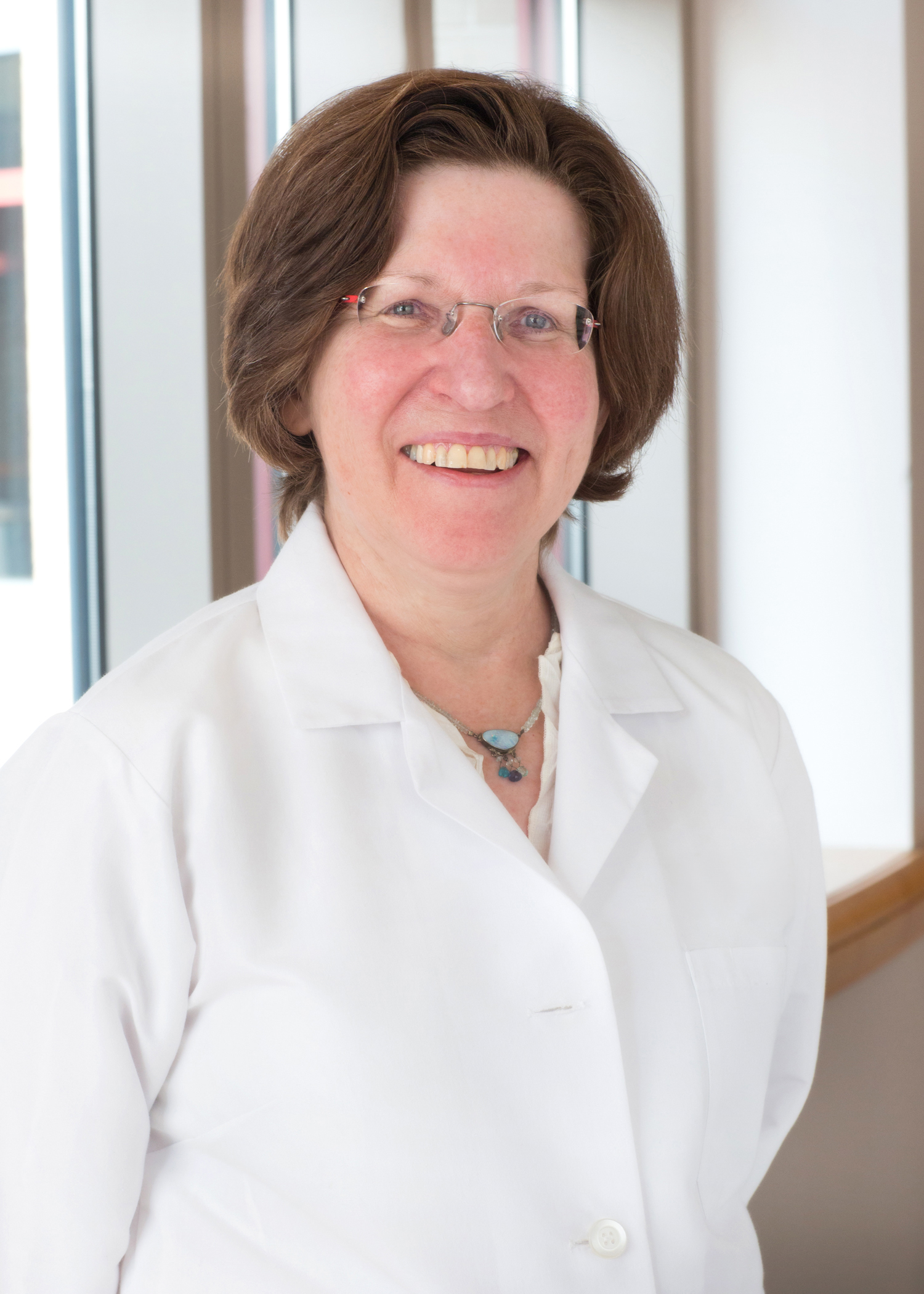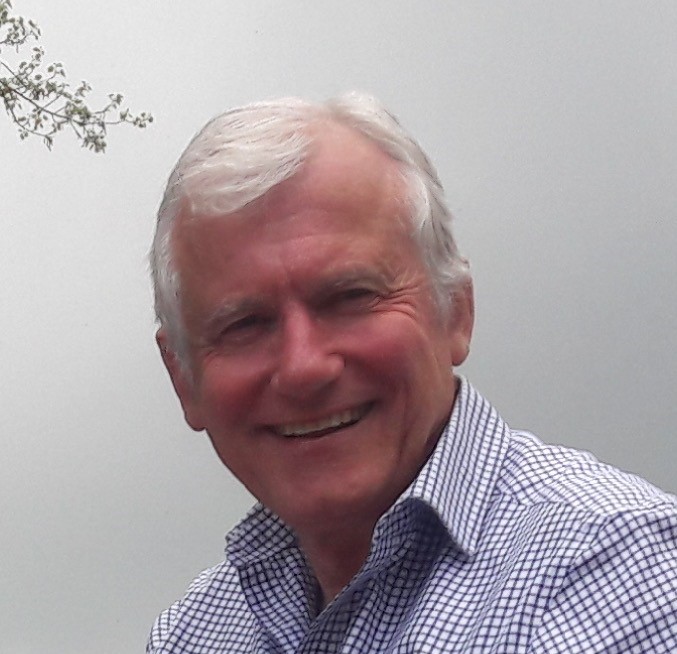New Brunswick, N.J. and Boston, M.A., June 19, 2025 – Researchers from RWJBarnabas Health and Rutgers Cancer Institute, New Jersey’s only National Cancer Institute-designated Comprehensive Cancer Center, as well as Tufts Medical Center and The University of Manchester have developed and validated the first individualized risk prediction model for adults diagnosed with early-stage classic Hodgkin’s lymphoma. Known as the Early-stage Hodgkin International Prognostication Index (E-HIPI), the model estimates two-year progression-free survival (PFS) and is designed to support more personalized treatment planning for clinicians and patients.
.jpg)
The findings were published in the New England Journal of Medicine (NEJM) Evidence and presented concurrently by co-first and corresponding author, Andrew M. Evens, DO, MBA, MSc, Deputy Director for Clinical Services for the Rutgers Cancer Institute and Chief Physician Officer of the Jack & Sheryl Morris Cancer Center, during the 18th International Conference on Malignant Lymphoma (ICML), a leading global forum for lymphoma research and clinical advancements.
The E-HIPI model was developed using data from over 3,000 adult patients enrolled in four, pivotal international phase III clinical trials. To ensure its accuracy, it was tested and validated in two real-world registry cohorts that included more than 2,300 people with early-stage classic Hodgkin’s lymphoma. The model uses routinely available and objective clinical measures—like patient sex, tumor size, and exact values of common lab results such as hemoglobin and albumin levels—to help predict an individual patient’s chance of staying cancer-free for two years.
“Early-stage classic Hodgkin’s lymphoma is a highly curable cancer, particularly among young adults. However, despite high survival rates and significant advances in treatment, we’ve lacked a validated tool to assess outcomes and estimate a patient’s individual risk of relapse,” said Dr. Evens, who is also System Director of Medical Oncology and Oncology Lead, RWJBarnabas Health Medical Group, Associate Vice Chancellor for Clinical Innovation and Data Analytics at Rutgers Biomedical and Health Sciences. “Through this global collaboration with researchers at Tufts Medical Center, the University of Manchester in the United Kingdom, and all our international partners, we developed a robust, dynamic, and data-driven model that leverages common clinical variables to generate more precise predictive insights. This tool has the potential to enhance clinical decision-making, personalize treatment strategies, and ultimately improve long-term outcomes for patients worldwide.”
The E-HIPI model demonstrated strong and consistent performance across all datasets and outperformed the widely used European Organization for Research and Treatment of Cancer (EORTC) favorable/unfavorable classification. To facilitate real-world implementation, the research team developed interactive online risk calculators, to support shared decision-making between clinicians and patients. In addition to informing personalized treatment, the E-HIPI provides modernized risk stratification for the design of future clinical trials and research studies.

“We hope that this model will enhance communication between patients and clinicians, and promote a greater understanding of the short- and long-term risks and benefits of different treatment options for early-stage classic Hodgkin’s lymphoma,” said Susan K. Parsons, MD, MRP, medical director of the adolescent and young adult (AYA) cancer survivorship program, research director of the Center for Health Solutions at Tufts Medical Center, co-founder of the HoLISTIC Consortium, and co-senior author of the study. “Ideally, this type of information about treatment trade-offs will alleviate some of the burden experienced in the cancer journey."
“We rigorously developed and validated our model based on an established checklist for predictive modeling,” said Angie Mae Rodday, PhD, investigator in the Institute for Clinical Research and Health Policy Studies at Tufts Medical Center, biostatistician at the Tufts Clinical and Translational Science Institute and lead statistician for National Cancer Institute's funded project. “When we compared our model to existing classification systems, it had better performance and was more strongly related to patient outcomes. The online calculator we developed as a result of this work is accurate, accessible, easy-to-use and is completely free for patients and clinicians.”
This research was made possible through the HoLISTIC (Hodgkin Lymphoma International Study for Individual Care) Consortium, a global effort combining data from seminal randomized clinical trials and cancer registries, which are enriched with long-term patient follow-up. The Consortium’s shared resources enabled the development and validation of the E-HIPI model and will continue to support its refinement as new data emerge, helping ensure its continued relevance in clinical practice. The E-HIPI builds on the success of the previously established A-HIPI (Advanced-stage Hodgkin lymphoma International Prognostication Index), which was also developed by investigators at RWJBarnabas Health, Rutgers Cancer Institute, Tufts Medical Center, and other centers and colleagues around the world. A-HIPI is a modern clinical decision tool designed to predict five-year progression-free and overall survival in adults with advanced-stage classic Hodgkin’s lymphoma. Together, these complementary models represent a significant step forward in advancing precision medicine across the full spectrum of Hodgkin’s lymphoma care. Investigators are actively pursuing next steps to further enhance individualized predictions by integrating different treatment regimens into the models as well as to estimate the risk of post-acute and late consequences that may occur years after therapy is completed.
Rachel Murphy-Banks, program manager of the Reid R. Sacco Adolescent & Young Adult Cancer Program at Tufts Medical Center and project manager of the HoLISTIC Consortium, was a key contributor to the visualization of the graphic interface.

“This research is a powerful example of what can be accomplished through international scientific collaboration,” said John Radford, MD, FMedSci, Professor of Medical Oncology at The University of Manchester, Consultant Medical Oncologist at The Christie NHS Foundation Trust, and co-lead of the Living With and Beyond Cancer Theme at the National Institute for Health and Care Research (NIHR) Manchester Biomedical Research Centre, UK, who is co-senior author of the study. “Through the HoLISTIC Consortium, we brought together patient-level data from pivotal clinical trials and global cancer registries to develop a predictive model that is both rigorous and widely applicable. The success of this effort underscores the power of cross-border partnership, and its potential to deliver meaningful, real-world benefits to patients with Hodgkin’s lymphoma worldwide.”
About RWJBarnabas Health
RWJBarnabas Health is New Jersey’s largest and most comprehensive academic health system, caring for more than five million people annually. Nationally renowned for quality and safety, the system includes 14 hospitals and 9,000 affiliated physicians integrated to provide care at more than 700 patient care locations.
RWJBarnabas Health partners with its diverse communities to build and sustain a healthier New Jersey. It provides patient-centered care in a compassionate and equitable manner and is the state’s largest safety-net provider and leader in addressing the social determinants of health. RWJBarnabas Health provides food to the hungry, housing for the homeless and economic opportunities to those most vulnerable.
RWJBarnabas Health’s commitment to enhancing access to care includes a transformative partnership with Rutgers University, including the Rutgers Cancer Institute — the state's only NCI-designated Comprehensive Cancer Center, and Rutgers Robert Wood Johnson Medical School.
RWJBarnabas Health is among New Jersey’s largest private employers, with more than 43,000 employees, contributing more than $5.5 billion to the state economy every year. For more information, visit www.RWJBH.org.
About Rutgers Cancer Institute
As New Jersey’s only National Cancer Institute-designated Comprehensive Cancer Center, Rutgers Cancer Institute, together with RWJBarnabas Health, offers the most advanced cancer treatment options, including bone marrow transplantation, proton therapy, CAR T-cell therapy and complex surgical procedures. Along with clinical trials and novel therapeutics such as precision medicine and immunotherapy – many of which are not widely available – patients have access to these cutting-edge therapies at Rutgers Cancer Institute in New Brunswick, Rutgers Cancer Institute at University Hospital in Newark, as well as through RWJBarnabas Health facilities.
About Tufts Medicine
Tufts Medicine is an innovative health system that brings together the best of academic and community medicine to deliver exceptional, connected, and accessible care. Tufts Medicine is comprised of Tufts Medical Center, the principal teaching hospital of Tufts University and Tufts University School of Medicine, Lowell General Hospital, MelroseWakefield Hospital, Lawrence Memorial Hospital of Medford, Care at Home, and an integrated network of 2,300 physicians in Massachusetts and southern New Hampshire. We treat the most complex conditions, keep our communities healthy and bring research breakthroughs to life. Learn more at www.tuftsmedicine.org.
The University of Manchester
The University of Manchester is recognised globally for its pioneering research, outstanding teaching and learning, and commitment to social responsibility. The Russell Group institution is ranked the 6th best university in the UK and 52nd in the world (Academic Ranking of World Universities).
A truly international university, its community includes more than 44,000 students, 12,000 staff, and 550,000 alumni from 190 countries. Together, they are tackling the world’s biggest challenges – the University’s social and environmental impact is ranked in the top ten globally (Times Higher Education Impact Rankings).
The University is a powerhouse of research and discovery; 26 Nobel laureates are among its former staff and students; and it was ranked fifth for research power – the quality and scale of research and impact – in the UK government’s Research Excellence Framework (REF) 2021.
The institution is the most popular in the UK for undergraduate applications (UCAS 2023 cycle), and it is the most targeted university by the UK’s leading employers (The Graduate Market, 2024).
Learn more at www.manchester.ac.uk
About the National Institute for Health and Care Research (NIHR)
The mission of the National Institute for Health and Care Research (NIHR) is to improve the health and wealth of the nation through research. We do this by:
- Funding high quality, timely research that benefits the NHS, public health and social care;
- Investing in world-class expertise, facilities and a skilled delivery workforce to translate discoveries into improved treatments and services;
- Partnering with patients, service users, carers and communities, improving the relevance, quality and impact of our research;
- Attracting, training and supporting the best researchers to tackle complex health and social care challenges;
- Collaborating with other public funders, charities and industry to help shape a cohesive and globally competitive research system;
- Funding applied global health research and training to meet the needs of the poorest people in low and middle income countries.
NIHR is funded by the Department of Health and Social Care. Its work in low and middle income countries is principally funded through UK international development funding from the UK government.
For journalists – contact:
Krista Didzbalis
Corporate Communications Specialist, Strategic Communications, RWJBarnabas Health
732.507.8307
krista.didzbalis2@rwjbh.org
For patient appointments/inquiries – contact:
Jeremy Lechan
Media Relations Manager
Department of Marketing & Communications
508-333-4852
jlechan@tuftsmedicalcenter.org
Mike Addelman
Media Relations Officer
Animal Research Communications Lead
Faculty of Biology, Medicine and Health
University of Manchester
07717 881567
michael.addelman@manchester.ac.uk

